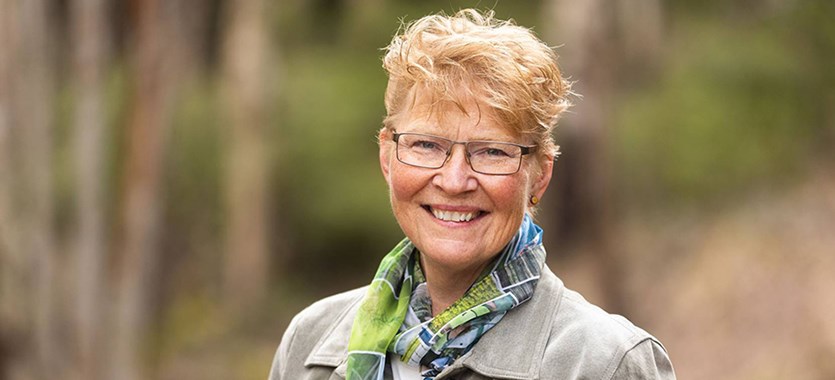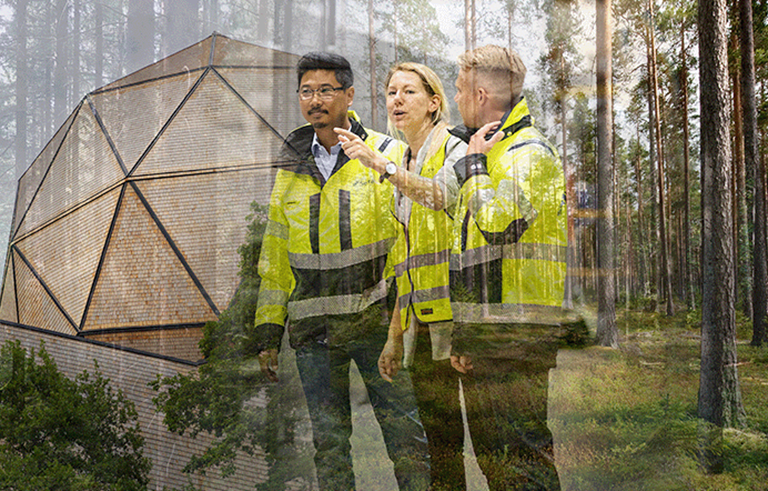The second year of the pandemic brought real social impacts, such as increased sick leave, quarantine rules and continued working from home. We were also affected by a turbulent international freight market and container shortages, among other things.
The situation has required a high degree of flexibility, both internally from Setra’s organisation and production units, and in our logistics flow. I am proud to say that thanks to determination, goodwill and teamwork, we have coped with all these challenges very well. I would even go so far as to say that the trials have deepened our cooperation internally and with partners, strengthened our team spirit and honed our problem-solving capacity. This in itself is a mark of strength, as our growth journey now continues apace.
High demand for wood products
There has been a global wood products shortage since spring 2020, driven by increased residential and commercial building in wood, as well as an upturn in home improvements. Unprecedented demand has pushed prices to historically high levels. The Setra Group’s operating profit for 2021 amounted to SEK 1,588 million, compared with SEK 107 million in the previous year. Net sales were SEK 5,841 million, compared with SEK 4,131 million in 2020.
In many ways these are incredible, marketdriven figures, but behind them lie hard work, key strategic decisions and well timed investments.
Three of our focus areas
In 2021, we have advanced our positions in three areas in particular. The trim saw and planing machine that we brought on stream in Hasselfors in autumn 2020 has enabled us to quickly build our business in exporting planed construction timber to markets including the UK, the US and Australia.
At the same time, we have been able to ramp up production of cross-laminated timber (CLT) at our factory in Långshyttan. Over the year, Setra continued to supply CLT frames to the prestigious Cederhusen project, Stockholm’s first modern wood-built inner city residential development. Demand for CLT is high and continues to rise. The construction industry’s efforts to reduce its climate footprint are being aided by wood raw material, as wood is the only renewable, low-carbon building material available.
Our third area demonstrates how we are also taking other innovative steps to combat climate change. The end of 2021 saw the opening of the Pyrocell plant in Gävle, a joint venture with the fuel company Preem. Here, next door to Setra Kastet, sawdust is converted into non-fossil pyrolysis oil, which can then be processed into renewable diesel and petrol. We are proud to own the first inte-grated sawmill in the world that can now use a residual product in this pioneering form.
Investments for the future
Setra’s future looks bright, both in the short and long term. There are some dark clouds on the horizon, concerning the security situation in Europe, the global economy after the pandemic and political threats to the sustainable forest management practices that we are used to in Sweden, but it is difficult to predict what will become of them.
For us at Setra, Grönsamhet is a platform for everything we do, meaning that our business should generate green profit not only us but also our customers, society and nature. Linked to this, we are keenly pursuing our goal of becoming climate neutral by 2030, which is primarily about finding the most climate-smart transport solutions possible.
Internally, we continue to upgrade our sawmills and make our primary production more efficient. A number of new strategic investments were decided in 2021, the largest of them being new saw lines in Skinnskatteberg and Malå and drying kilns in Heby and Hasselfors.
Katarina Levin, CEO




